Dateline: 22 March 2006
It is still cold and snowy here in Central New York state. Not much is happening on our little homestead so I’ll regale you with another story from a chapter in my life....
~~~~~
Back in 1999 I had been working as a carpenter for 20+ years, the last 10 of which I was self-employed. I enjoyed the physical and mental challenges that came with working in the building trades. But circumstances had left me burnt out and I needed a change. I was praying for the Lord to provide some new opportunity. I really didn’t know what it would be. Nothing much interested me. Like I said, I was burnt out, and a little depressed too. Then I heard that the local vocational high school was looking to fill an assistant teacher position in the building trades program.
I am not a certified teacher. I have only a high school diploma and a few college credits from one year of a two-year program in building trades at a state college. That was, however, enough to get me the job. It helped that I knew the program’s teacher (he called to tell me about the job) and, years before, I had taught adult education classes in carpentry a few times. But I think the real reason I got the job was that they were desperate to fill the position. It only paid $12,000, no one else was interested, and the school year was starting in less than a week.
Back in 1987, when Marlene was pregnant with our first child, a full six years before we would be officially homeschooling that child, we attended our first homeschool meeting. So we were “into” homeschooling long before we actually did it. It seemed kind of ironic that I, a homeschooling father and critic of government schooling, would be taking a job teaching in the government system. Nevertheless, I felt like God had opened a door and He wanted me to take the job. So that’s how I happened to become a government school teacher.
The school was structured such that we had a class of 11th graders in the morning and12th graders in the afternoon. The kids were bussed in from several surrounding school districts. Each student’s school district was referred to as their “home school,” which always sounded weird to me.
There was some classroom instruction and some shop work but much of the class time was spent off campus on a job site out in the community. That year, the class was building a good-size addition on a ranch house.
With the teacher, Mr. Edmonds, and I instructing them, the kids framed the floor deck and walls. We installed roof trusses and sheathing and windows and doors and roofed and insulated and hung drywall. It was amazing, really, what got accomplished, especially considering the workforce.
There were around twenty-five 11th graders and half that many 12th graders. Most of the students were there because the guidance counselors at their home schools didn’t know what else to do with them. They were either not academically smart or had behavioral problems—or both. The trade school was, I’m sorry to say, something of a dumping ground.
I was saddened by what I saw in the kids. There was a lot of anger, confusion, and rebellion. Many of the kids were from broken homes and dysfunctional family situations. One boy came in visibly battered one day and when I asked him what happened he told me his father came home drunk and beat him. One day a police officer came into the classroom and arrested a student. The language I heard was crude and vulgar, even from the girls. The situation was a bit worse than I expected.
There were a few girls in the class and they were more of a distraction than anything else. They certainly were not serious about learning the building trades. Amazingly, at one staff meeting, the school principle (a sincerely decent and dedicated man) explained to us that the N.Y. state education department was very concerned about the low number of girls that were enrolled in certain trade programs. The government officials wanted to see more females enrolled in programs like heavy equipment operation, auto mechanics, welding & machine trades, small engine repair, etc.
There were a couple of 11th grade kids in the class who acted as “normal” as the rest, but they could not read. To “solve” this problem, the school hired teacher aids. Their job was to shadow the students in the class and on the job site and help them as needed. There were two aids in our class. If there was a written test, the aid would read the questions to the student. And if a student did not understand a question, the aid helped him figure it out. I don’t know for sure, but they may have helped them write the answers down too.
I should point out that there were a few really bright and talented students. They were there because they sincerely wanted to learn the building trades and, somehow, they had managed to overcome the objections of their guidance counselors who encourage all bright students to pursue more academic classes and go to college. Unfortunately, those bright and eager-to-learn students were unable to learn as much as they could have because the slower kids and the kids with the behavioral problems brought the whole class down to their level. That is always the way it works in the government school system.
My heart went out to those kids—every single one of them. When I was with them, I tried to connect with them, to bless them by being a good example and an encourager. When I wasn’t with them, I prayed for them. In some instances, I feel like I made a little progress. I felt like maybe I made a little difference. That, and that alone, made my one year of teaching in the government school system enjoyable and rewarding.
I also gained a new respect for teachers and the work they do. Often, in the afternoons, after the kids were gone, Mr. Edmonds and I would visit other teachers or they would stop in and visit us. We would informally discuss the events of the day. I came to realize that some teachers are, essentially, not much more than state workers, just putting in their time. But most of those teachers were dedicated and caring people who were profoundly discouraged but valiantly trying to do something good and positive with the students in their classes. One constant lament was that the state was after them to “raise the standards” but it was obviously impossible to do that with the caliber of kids they had to deal with and the way the system was set up. Nevertheless, every day they did what they could, and it’s my opinion that they were doing an admirable job.
Because of my experience, I am persuaded more than ever of the value and virtue of home education. I am also persuaded more than ever that the government education system is a failure. But I do not think it is a failure because teachers are failing to do their jobs. Surely, that is the case in some instances, but there is a deeper and broader flaw that underlies the entire system. The industrial system simply does not work when it comes to managing, caring for, and educating humans.
Industrialized production certainly can be used to effectively and efficiently and, therefore, inexpensively crank out books and pencils and even school lunches. But the industrial system never has and never will crank out consistent education of people.
In fact, the exact opposite of the desired effect is what you get with industrialized education— efficiency turns into inefficiency; time and money and lives are wasted. The masses become less educated.
And not only are they less educated, they are more easily manipulated and far more dependent on the industrial system and the industrial/government providers. That’s not my definition of good education!
~~~~~
A couple weeks before the end of that school year, God opened another door for me and I left the teaching position. I went into something even more culturally strange and unfamiliar, where I deal with people even more troubled.
Someday I may tell you a bit about my current job. But it is not something I like to talk about. I’d rather talk about the antithesis of our dying modern culture. I’d rather talk about the beauty of life when it is lived according to Christian and agrarian principles—a life that is family and community and earth and soil centered. It is the life I know and love apart form my “regular” job. It is “the good life” and I so wish that more families could know it.











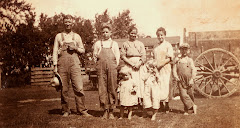



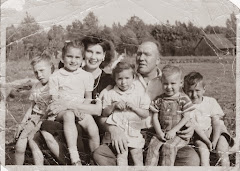




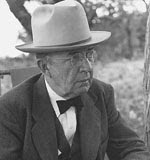
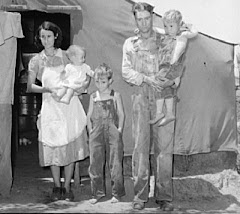























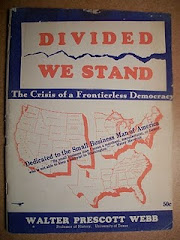














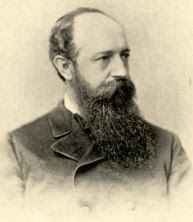




















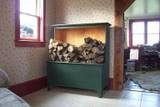















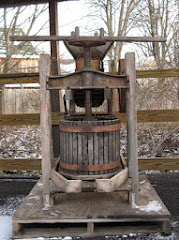



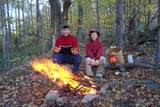

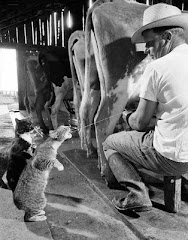







2 comments:
Thanks for sharing, Herrick. My husband began his government school teaching in a tech school in NH (teaching auto mechanics courses), and finished his illustrious career with government schools in 2004, after teaching engineering for 18 years in a state run university in ND. Our oldest is 15 and has been home schooled all his life, so we had the same situation as you did. We were thankful when the Lord made it very clear when it was time for Jim to go on to something else.
Wow Herrick! That is fascinating. Brian was a public school teacher too. His parents are both retired teachers and his sisters also teach in the public school system. Brian supports homeschooling obviously, but we do have a bit of tension in the family about our decision to homeschool.
Post a Comment